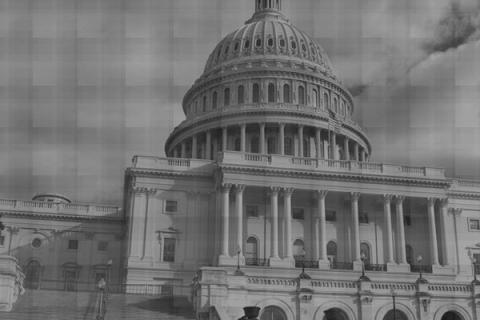Now that the shock of the election has worn off, no subject has earned more print than the by-a-hair loss of Proposition 19, California's biggest chance at a "marijuana legalization" experiment in years. This Saturday's New York Times has already fired a volley in the battle over the measure in an article that contains the following fascinating observation:
"'The Prop 19 campaign really did not do anything to help people get over their fear of marijuana, the substance,' said Steve Fox of the Marijuana Policy Project. The California vote was in line with a pre-election Gallup survey that found 46 percent of Americans favoring legalization. Ethan Nadelmann of the Drug Policy Alliance said long-term trends were in the legalization movement’s favor, as were public perceptions of who marijuana users are. Now, he said, the drug is associated with 'medical users, middle-class parents, nonrebellious youth.'"
The first sentence especially is worth noting, and it is emblematic of a phenomenon which, while underestimated and non-concrete, could easily be seen as the decisive factor that sunk the entire idea: the impatience of its supporters.
Proposition 19, at least in theory, had a relatively easy path to victory - all it had to do was unite California's plentiful supply of pro-drug and progressive interests behind it, manage to diffuse the false images of marijuana use that opponents would use, avoid ideological dissension among its potential supporters, and generally come off as reasonable. In other words, it was a matter of little constructive action, with a few defensive moves necessary. People who support more politically problematic issues dream about a path to victory this obvious.
So what went wrong?
Several answers present themselves, but they all pale in comparison to the fact that Proposition 19's supporters seemed to really only "know" one thing about the campaign - that their opponents were knuckle-dragging morons. Naturally, every person on every side of every issue can feel that they are right and those opposing them are irrevocably allied to the side of darkness, but the sheer stridence of the pro-Proposition 19 campaign was still exceptional. Stridence alone can't sink a Proposition (some of the people supporting Propositions 8 and 13 could be accused of the same thing), but when it is used to paper over genuine weaknesses in the Proposition, it becomes risky.
There's little doubt that Proposition 19, even on its own terms, was an imperfect proposition at the ideological level, as exemplified by the fact that several hardcore pro-drug advocates came out against it for being too incrementalist and doing little to solve actual problems. Moreover, its libertarian supporters had good reason to be wary of provisions in the bill that regulated whether employees could be fired for partaking of the drug, as exemplified by a negative endorsement via the US Chamber of Commerce. These issues with the actual bill could have been addressed, and even used to bolster a stronger case for its passage, by a self-aware campaign.
Instead, those who even raised these issues were treated to a parade of horribles describing the way Californians who used marijuana would be treated, and the types of people who would be happy, if the bill were not passed. They were told that their teenage children would be stamped with the 'Mark of Cain' by the criminal justice system, that the current regime was tantamount to slavery, that any concern with Proposition 19 marked them as Carrie Nation-style prohibitionist loons and that marijuana is no big deal, man, so just chill out. None of these assurances, no matter how passionately felt they may have been by their advocates, necessarily would inspire confidence in the Proposition itself.
Moreover, the few constructive arguments that were made on behalf of the bill seemed to be unsure what the greatest benefit of its passage would be. Would it be the increased revenue that would flow from the flourishing, newly legal marijuana industry that would sprout in California? If so, would that mean that California would have a marijuana industry, and wouldn't that increase usage?
Alternately, should the bill have been passed because of the great personal freedom it would guarantee to people who otherwise did nothing wrong? If so, then how was it such an infringement on freedom to treat marijuana use as an offense on par with speeding, as Governor Schwarzenegger recently changed the laws to do?
These were the questions the campaign for Proposition 19 should have anticipated and answered, confidently, rather than going as far as they did to avoid them. In short, lack of discipline and lack of self-critique caused this particular, arguably promising proposition to go up in smoke.

